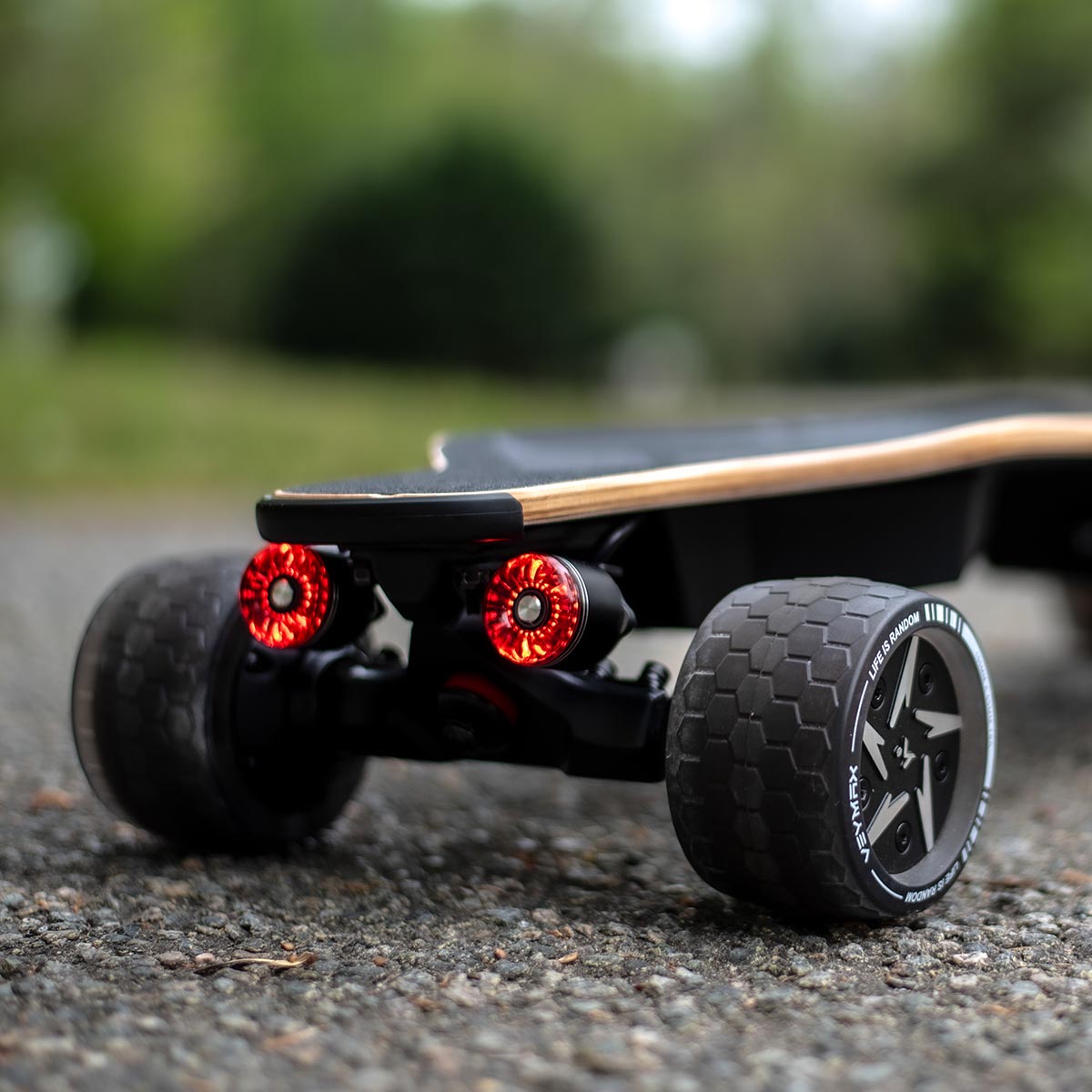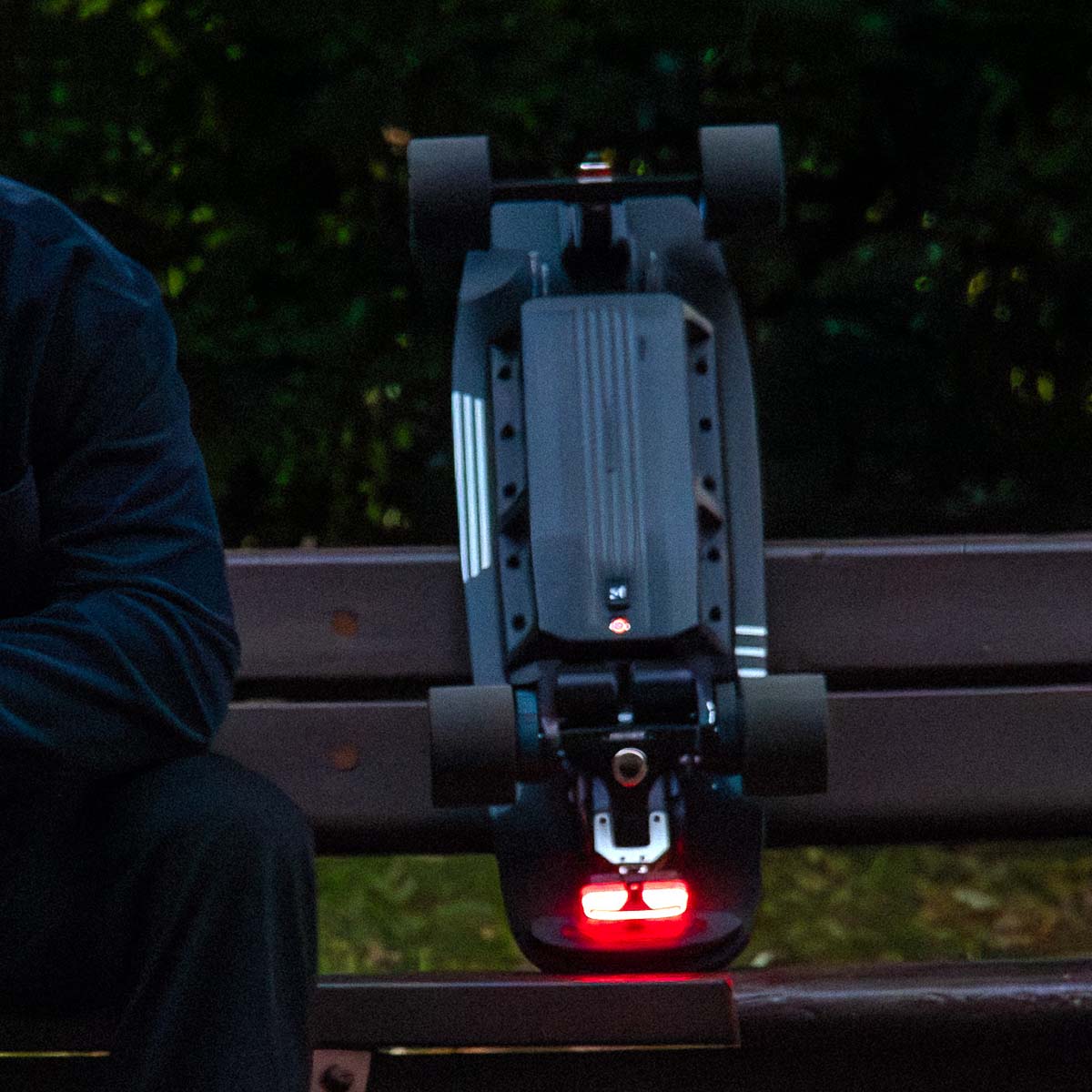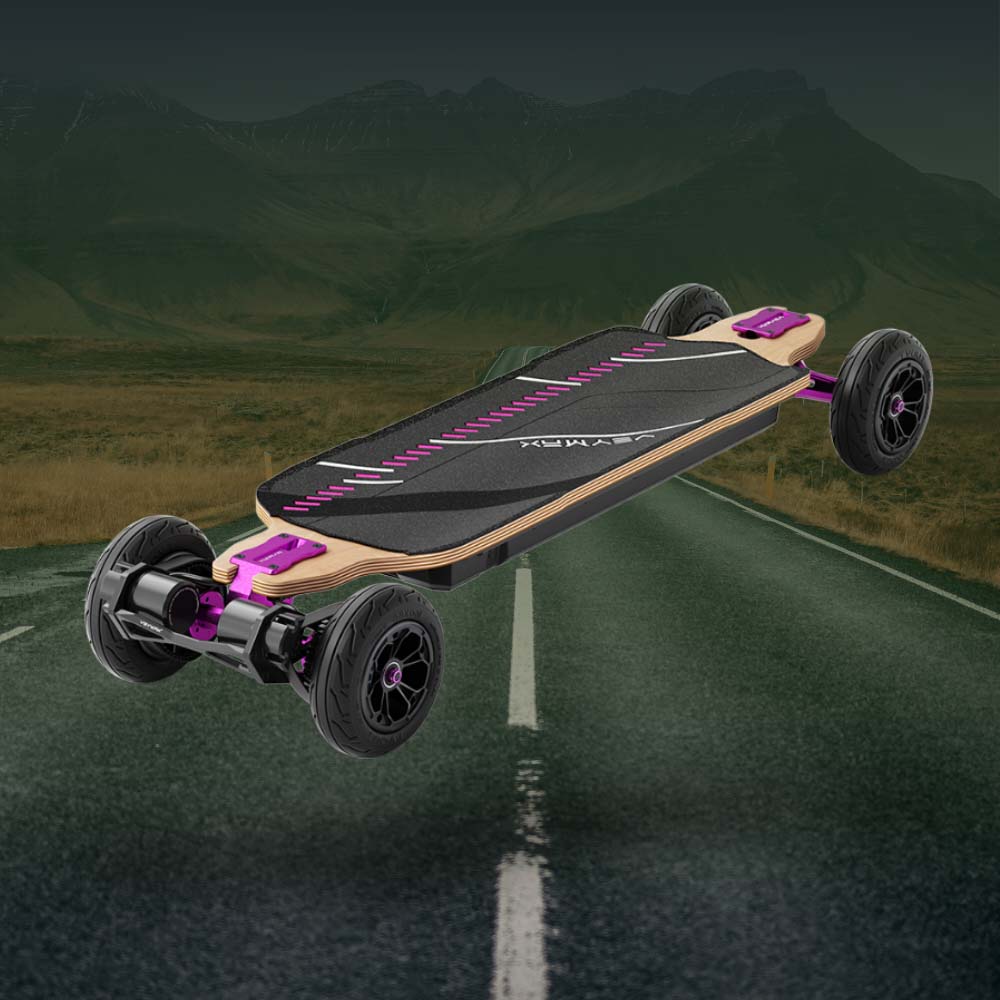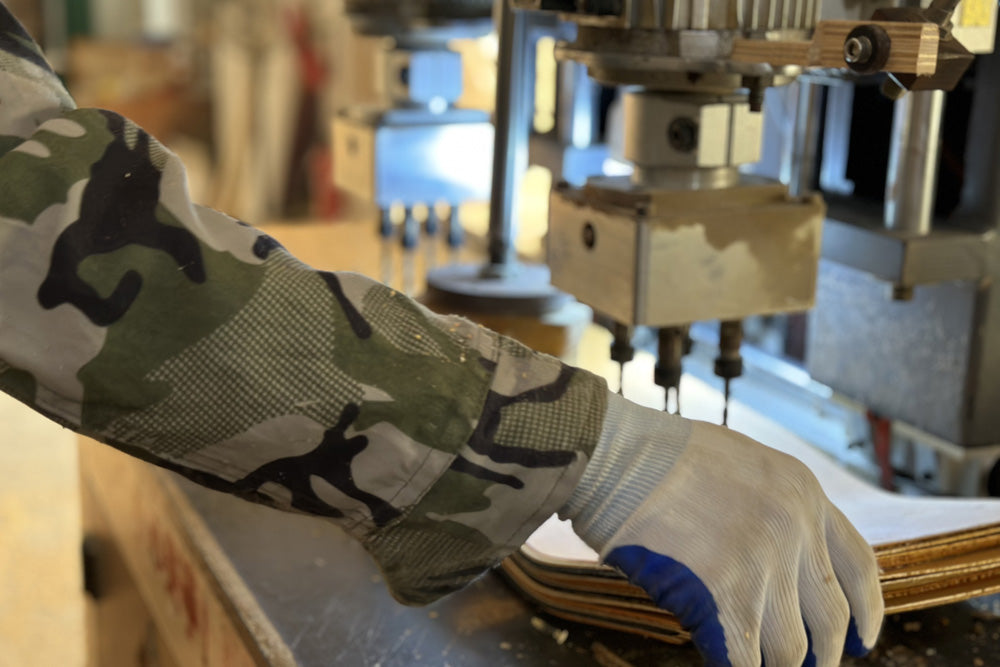An E-Skate board is a motorized version of a traditional skateboard that uses an electric motor to propel the board forward. It typically consists of a deck, trucks, wheels, and a motorized hub or belt that is powered by a battery. Motorized Skateboards come in a variety of styles and sizes and can reach speeds of up to 30 miles per hour or more. They are typically controlled by a handheld remote that adjusts the speed and braking of the board. Veymax Long boards are becoming increasingly popular as a form of transportation, particularly for short distances in urban areas.
Eskate Become Popular
Electric skateboards, also known as ESK8 or E-SKate, are becoming more and more popular, and they are very interesting to ride. They are equipped with motors in the wheels and are embedded on the deck.
In addition to electronic products, these fast -moving devices also include glass fiber and metal components. The deck ranges from ultra -hard platforms to highly flexible platforms. They are made of wood and plastic, and a non -slip belt is installed. The most advanced eskateboard model is fashionable, smooth and conforms to air dynamics.
On the flat ground, the harder board will occupy the upper hand; on the rugged surface, the flexible deck will help buffer impact and inhibit cracks.
What is Electric Skateboard History
The concept of an Motorized Skate board is relatively new, with the first Electric Skateboard being developed in the late 1990s. However, the history of skateboarding itself goes back much further.
Skateboarding originated in the 1940s and 1950s in California, where surfers started using homemade skateboards to practice their surfing skills on land. These early skateboards were made from wooden planks with wheels attached, and they were difficult to control and maneuver.
In the 1970s, skateboarding began to gain popularity as a sport, and the first skateboard parks were built. During this time, skateboard design evolved, with improvements in deck shape, wheel hardness, and truck design. The introduction of polyurethane wheels in the mid-1970s also greatly improved skateboard performance.
In the late 1990s, the first Electric Long boards were developed, with the first commercial Motorized Longboard hitting the market in 1999. These early Veymax Skate boards were heavy and had limited range, but they were still an exciting new development in the world of skateboarding.
Since then, Electric Skateboards have continued to evolve, with advances in battery technology and motor design leading to lighter, more powerful Eskates with longer ranges. Today, E-Skateboards are a popular form of transportation, especially in urban areas, and there are many different brands and models available on the market.
The invention of the Veymax Longboard is credited to Louie Finkle, who created the first Electric Skate board prototype in 1997. However, it wasn't until the early 2000s that Motorized Long boards became commercially available. Since then, Electric Longboards have become increasingly popular, with many companies producing their own models with different designs, features, and price points.
The Motorized Skateboard was invented by Louie Finkle in 1997. Finkle was a Southern California surfer and snowboarder who wanted to create a way to simulate the feeling of surfing and snowboarding on land. He developed a prototype for an Veymax Long board using a drill and a skateboard deck, and eventually founded the company E-Glide to produce and sell Electric Veymaxboards commercially. Since then, many other companies have entered the market and improved upon Finkle's original design, making Motorized Skate boards a popular mode of transportation and recreation for many people.






Leave a comment
This site is protected by hCaptcha and the hCaptcha Privacy Policy and Terms of Service apply.